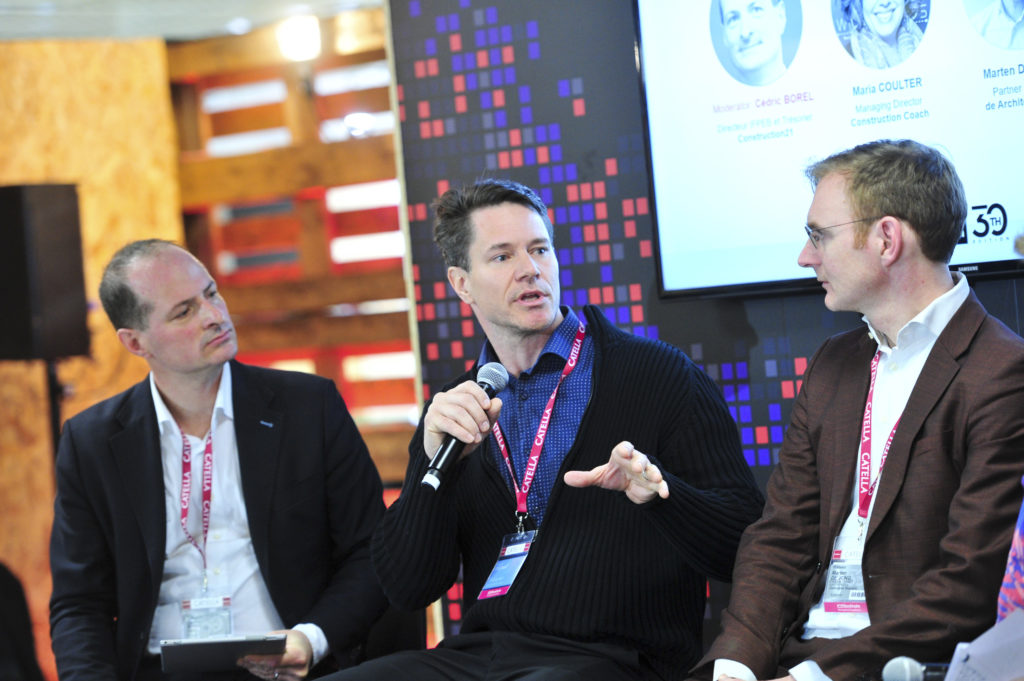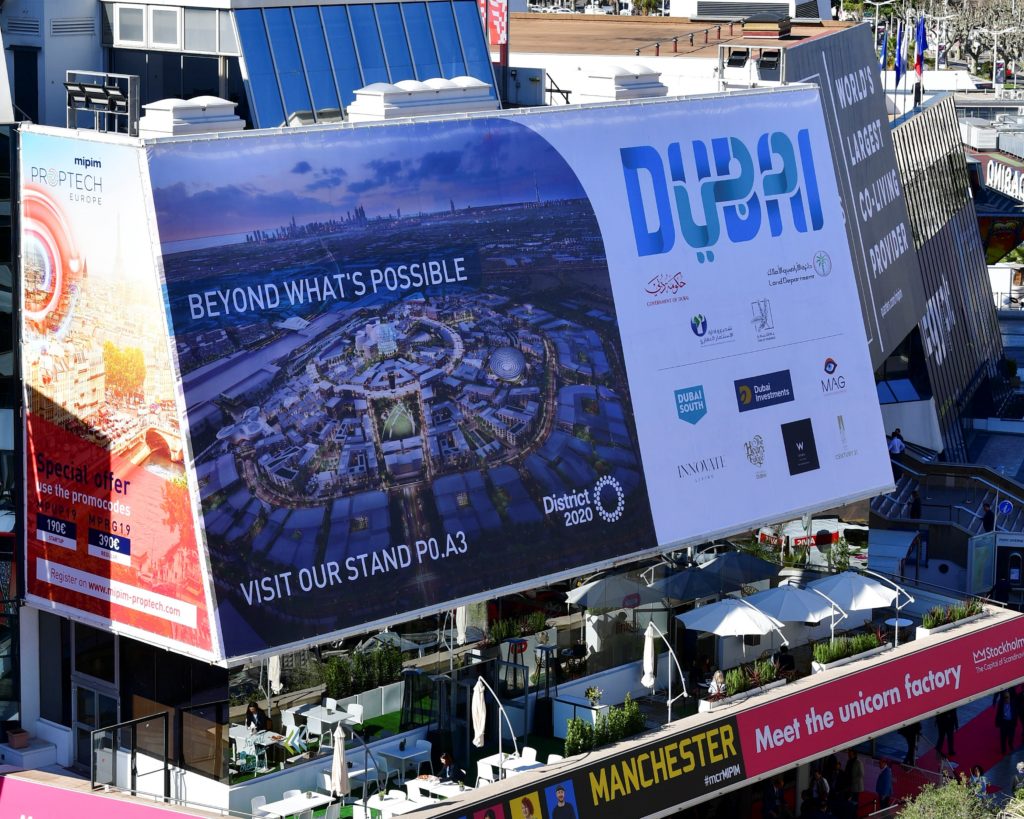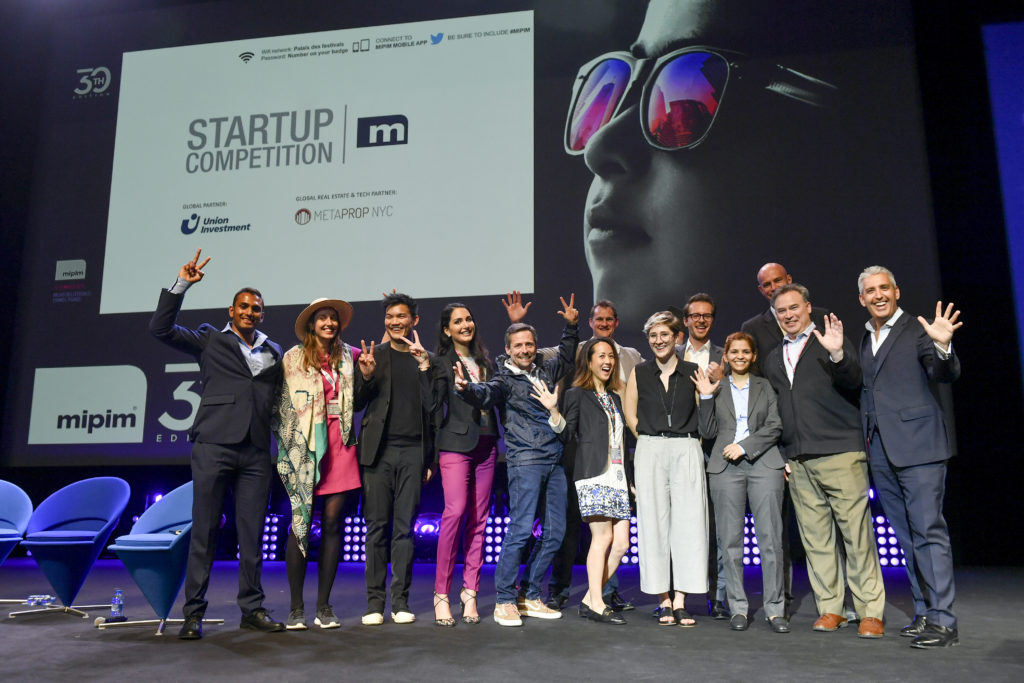Fourth MIPIM Start-Up Competition
The fourth ever MIPIM Start-Up competition was won by a company, Spaceti, which employs machine learning to improve building environments.
Spaceti co-founder Aakash Ravi’s passionate pitch convinced the illustrious panel of judges to pick the Prague-based start-up out of six contest finalists.

Aakash Ravi, Spaceti co-founder
“The system can monitor building usage, ranging from air quality to demand meeting spaces, to help landlords and occupiers understand how internal layouts can be improved if materials need to be replaced or greenery added,” Ravi said. “Why is this so important? Previously, companies used to focus on metrics such as energy and traffic. Now they’re interested in talent retention and productivity.”
MIPIM Start-Up competition 2019: the winners
In second place, modular building start-up Tatami impressed the judges with its cross-laminated timber construction panels manufactured off-site, ideal for affordable housing solutions. Third place, meanwhile, went to US-based start-up onTarget, which improves building site safety and accuracy via hardhat sensors and badges, in operation across the life of a construction project.
The other finalists in the MIPIM Start-Up competition included London-headquartered tenant experience app District Technologies, Hong Kong hotel concierge AI Neoma, and Berlin-based Sensorberg, a vertical hardware to software solution which can open doors and streamline workspace experiences.
People-driven solutions
A conference on workplace technology underlined that building innovations need to work hard for both landlords and tenants, filtering data to communicate needs, and facilitating productivity.
“Just as occupiers are turning to tech to assist them with talent retention, landlords need to provide the right infrastructure to keep their tenants,” said Charlie Kuntz, innovation offices at Hines.
Added Andrea Jang, head of growth Americas, JLL Spark: “Productivity is also an issue which can be answered by the new workplace tech. If you can understand what employees are doing during the day, even with their lunch break, you can create ancillary services.”
“The use of technology and the cues of hospitality that are coming into office buildings are very compelling,” said Jonathan Pearce, executive vice president, leasing office and industrial, North America, Ivanhoe Cambridge.
But an even broader message was that PropTech must ultimately meet the needs of a rainbow of end-users, tackling multi-generational expectations.
“Our community engagement platform enables property developers to reach wider demographics,” suggested Savannah De Savary, CEO & founder of Built-ID. “Rather than just attracting the people who have the time and inclination to go to an in-person meeting, a digital portal can help you engage with younger generations, busy professionals, parents and minorities.”
Construction industry challenges
The construction industry is in the front line of the PropTech challenge – and the revolution has already begun, said Shonn Mills, global director for a high rise at Ramboll Group.

Shonn MILLS Global Director for High Rise at Ramball Group
“In Singapore, the big movement is around getting technology into the built environment, and this revolution is going to change the way we do real estate,” he said.
For Marten de Jong, architect at Amsterdam firm de Architekten Cie., the priority remains the human angle. “The biggest challenge for us is to deliver a building that people actually use the way it has been designed – and in a sustainable way.”
Joyce Chan, head of sustainability at global architects HOK, said that there were stark differences between pre-construction sustainability certifications and emerging user data over the life of a building. “That’s why we need engagement programmes to show users how they are consuming resources and how to save on running costs long term,” she said.
“Actively using the data generated by buildings is key,” said Tobias Huber, global head for energy services & projects at Siemens Building Technologies, noting that a lot of data was lying “untouched in silos”.
Smart cities of the future
As developers and property owners seek to build better buildings and improve the existing stock across cities, “no-one should be left behind”, said Andrew Dewis, vice president energy & sustainability EMEA at Schneider Electric, quoting key-note speaker Ban Ki-moon.
“At Schneider, we’ve embarked on a journey of trying to build grid systems and grid networks in some of the hardest places on earth,” he added. “Open innovation is key to addressing some of those big, global challenges which involve multiple actors,” he affirmed.
Maxine Ghavi, group SVP, market development, Grid Edge Technologies, said that most cities were facing “an energy trilemma, of sustainability, reliability and affordability.” But she argued that solutions would have to address the four pillars of smart city development, smart buildings, smart infrastructure, smart transport and smart utilities.

Dubai at MIPIM 2019
A city with a chance to start from scratch is Dubai, delegates heard, where the city’s Expo 2020 district is taking shape on greenfield land. “We get to look at what is the best infrastructure, how we plan for future technology and mobility, to create a real legacy plan,” said Nadimeh Mehra, vice president, District 2020, legacy development and Impact, Expo 2020 Dubai.
“Smart technologies are not inherently good or bad, but the impact they have depends on the context into which they are applied,” argued Marvin Rees, Mayor of leading UK smart city, Bristol. He said that positive economic drivers and “politics of hope in which people have a stake” could “create the conditions which smart technology applied will produce a good. I suggest the reverse is also true,” he concluded.
This and countless more insights and data in our full report on PropTech at MIPIM 2019. Click here to download. All we ask is your email!
Top Photo: « Business Philosopher » Anders indset at PropTech Lab, MIPIM 2019




